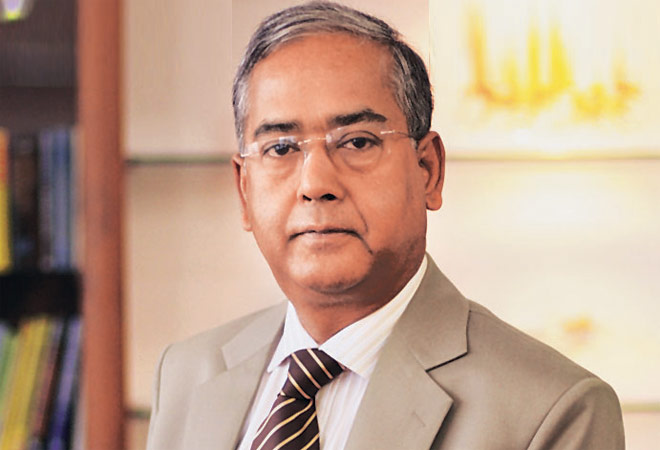Rahul Gandhi’s Latest Tweet Alleges Adani Sending Money Out Of India; The BJP’s Policies Are Designed To Concentrate India’s Wealth In The Hands Of A Few
The Adani Group, in recent times, has found itself embroiled in a series of allegations and controversies that have captured national attention. Accusations of money being funnelled out of India, manipulation of stock prices, and close links between the group and political figures have raised serious concerns within the Indian financial and regulatory environment. The unfolding events surrounding the Adani Group have found another voice, with Rahul Gandhi tweeting alleged offshore financial activities.

Today, Mr. Adani’s influence spans across various industries. He’s sending money out of India, manipulating the company’s stock price and using that money to buy Indian assets.
There are very close links between the PM and Mr. Adani.
The BJP’s policies are designed to concentrate India’s wealth in the hands of a few.
This tweet by Rahul Gandhi is making the rounds; however, there is nothing new in these allegations against the Adani Group.

Gautam Adani has been accused of channelling funds out of India, manipulating the stock prices of his companies, and reinvesting that money in Indian assets.
These allegations come with a strong suspicion of a close connection between the Prime Minister and Adani, and critics argue that BJP’s policies appear designed to concentrate wealth within a select few.

The Recent Events Concerning Adani Group
- Six of Eight Offshore Funds Used for Adani Firms’ Share Purchases Shut Down Amidst Investigation
This development poses a challenge for SEBI in identifying the ultimate beneficiaries of these investment entities. Six out of the eight public funds, based in Bermuda and Mauritius, allegedly used by individuals associated with the Adani Group to purchase shares in its publicly listed companies, have been closed, as per reports in the media.
Two Mauritius-based funds were shuttered last year, and a third is currently in the process of winding up; the same follows after an investigation initiated by the market regulator into offshore entities’ holdings in Adani group companies in 2020, according to reports.
Thus, the situation presents a significant challenge for the Securities and Exchange Board of India (SEBI) in ascertaining the true beneficiaries behind these investment entities.

- Close Ties Revealed Between Adani Group Investors and Majority Owners
The Organized Crime and Corruption Reporting Project (OCCRP), a global network of investigative journalists, recently disclosed that two individuals who secretly invested in the Adani Group have strong connections to the Adani family, which owns the majority stake in the group.
The revelation has raised concerns about potential violations of SEBI’s rules regarding free float norms. Nasser Ali Shaban Ahli and Chang Chung-Ling, the two men in question, have reportedly traded hundreds of millions of dollars’ worth of Adani Group stock, according to the OCCRP report.
The report notes that both individuals have close ties to the Adani family, even serving as directors and shareholders in affiliated companies. However, it should be noted that there is no concrete evidence suggesting that the funds used by Chang and Ahli for their Adani Group investments originated from the Adani family.
Nevertheless, documents obtained by OCCRP indicate that Vinod Adani used one of the same Mauritius funds for his personal investments; the OCCRP had shared its findings with The Guardian and Financial Times.
Adani Group has vehemently denied these allegations, stating that they reject the recycled claims and consider them a concerted effort to undermine their reputation.
- Possible Violation of Free Float Norms Raises Concerns
The allegations are rooted in suspicions that prominent “public” investors in the Adani Group may actually have close affiliations with the group itself. If proven true, this would constitute a breach of SEBI’s rules governing minimum public shareholding norms.
According to SEBI regulations, a publicly listed company must ensure that at least 25% of its shares are freely available for trading on the stock market. Promoters are allowed to hold only 75% of the shares, with the remaining 25% designated as free float, excluding promoters’ holdings. Violating these free float norms could result in the delisting of a company from stock exchanges, as was the case with Patanjali Foods.
In March, stock exchanges froze the promoter shareholding of Patanjali Foods after the company failed to meet the 25% public shareholding requirement within the stipulated timeframe. The promoter stake in the company, backed by Baba Ramdev, currently stands at 80.82%. Patanjali Foods had planned to dilute a 6% stake to meet the minimum public shareholding norms of 25%.
- The Shuttered Offshore Funds
According to a leading daily, it has identified several of the closed funds, which could have aided regulators in determining the ultimate beneficiary and advancing their investigation.
SEBI has been conducting an inquiry into whether the Adani Group violated rules related to minimum public shareholding, transactions involving related parties, and stock price manipulation, as alleged in a report by US-based short seller Hindenburg Research.
According to the report, the Bermuda-registered Global Opportunities Fund, established on January 6, 2005, was closed on December 12, 2006, as per regulatory filings in Bermuda.
Mauritius-based Assent Trade and Investment Pvt. Ltd, formed in April 2010, became defunct in June 2019. Lingo Trading & Investment Pvt Ltd, incorporated in December 2009, closed in March 2015. Mid East Ocean Trade & Investment Pvt. Ltd was established in September 2011 and closed in August of the previous year.
Similarly, the EM Resurgent Fund, established in May 2010, ceased operations in February of the following year. Asia Vision Fund, founded in May 2010, appointed liquidators on April 20, 2020, and is currently in the process of winding up, based on the filings reviewed.
A seventh fund, Emerging India Focus Funds, established on May 19, 2008, remains active. Details regarding Gulf Asia Trade and Investment, registered in the United Arab Emirates, could not be confirmed by the media as well.

- The DRI Letter to SEBI
What stands out in the OCCRP report is that SEBI received a letter from the Directorate of Revenue Intelligence (DRI), a federal anti-smuggling agency, in January 2014, regarding a case under investigation by the DRI.
The OCCRP reported that the DRI had evidence suggesting that money from an alleged over-invoicing scheme had been transferred to Mauritius.
The DRI’s director general at the time, Najib Shah, wrote in the letter to then SEBI chief U.K. Sinha that there were indications that some of the diverted funds may have entered the Indian stock markets as investments in the Adani Group.
The DRI’s case indicated that money from the alleged scheme was sent to a company in the United Arab Emirates named Electrogen Infra FZE. This company subsequently transferred approximately $1 billion to a Mauritius-based holding company with a similar name, Electrogen Infra Holding Pvt. Ltd, ultimately owned by Vinod Adani.
Reporters were able to trace the onward flow of over $100 million from these funds. The Mauritius company then extended a loan to another company owned by Vinod Adani, Assent Trade & Investment Pvt Ltd, for the purpose of investing in the Asian equity market. Vinod Adani, as the beneficial owner of both Electrogen Infra Holding and Assent, signed the loan document as both the lender and the borrower.
This money was eventually channelled into the Global Opportunities Fund (GOF), the same intermediary used by Chang and Ahli, and then invested in both EIFF and Asia Vision Fund, another Mauritius-based investment vehicle, as reported by OCCRP. However, it remains unclear whether Sinha acknowledged the DRI letter or took any action in response to it.

- Incumbent Chairman of NDTV Linked to Adani Group
In March of this year, U.K. Sinha was appointed as the non-executive chairman and additional director for NDTV until March 26, 2025, and it is worth noting that the Adani Group holds a majority stake in NDTV.
The Last Bit, The allegations surrounding the Adani Group have cast a shadow over India’s financial markets and regulatory institutions. The close ties between prominent investors and the Group’s owners, coupled with suspicions of funds being routed offshore, have raised serious questions about the adherence to SEBI’s regulations.
As SEBI continues its investigation, the shuttering of offshore funds only adds to the complexity of identifying the ultimate beneficiaries. While the Adani Group staunchly denies these allegations, the gravity of the situation demands a thorough and impartial examination.
The broader implications are clear: the integrity and transparency of India’s financial markets are at stake. Whether the accusations prove to be true or not, these incidents indicate the need for robust regulatory oversight and the importance of preserving public trust in India’s financial ecosystem.
As the events continue to unfold, they undoubtedly leave a lasting impact on how the nation views corporate governance and the responsibilities of financial regulatory bodies in safeguarding the interests of the public and investors alike.
For now, Rahul Gandhi’s tweet is yet another nail in the coffin.




